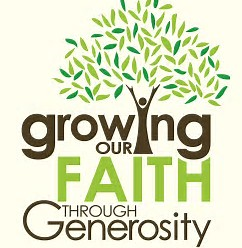September 12, 2018 in Congregations, Stewardship
Generosity Tip: It’s About Time

As we enter a new program year, families and the church face an important issue – how do we manage (steward) our time?
Summer is over, weekend trips to the shore or mountains are memories, school is already in full swing and with school come all of the school and extracurricular activities, and your children are interested in too many of them. How do we choose and how do we manage schedules with multiple children, each with their desired activities?
In our churches, and in many other not-for-profit organizations, including sports teams, mentoring opportunities, service organizations and more, the search is on for volunteers who can give just a bit of their time. How do we juggle all of the activities, along with work and household chores, let alone some time for fun and fitness for ourselves?
Time might be the most precious thing in our lives, because everyone has just 24 hours in a day and seven days in a week. When we allow our lives to be overloaded by options, we can get pulled in too many directions and can lack the energy and focus to enjoy our main activities and give them our best. We can’t do everything well at once. The question arises then: how can we learn to set priorities and say no?
So here are some tips to help you steward your time well:
- God blesses us with material resources, but God also blesses us with time. We must steward our time wisely; recognizing that our time is a gift from God helps us think seriously about how we use it. Using our time wisely requires focus and discipline.
- Focus where God has given you gifts and callings. God gives us clues about what activities we should focus on. Everyone has different gifts. The abilities with which God has entrusted us offer signs about which activities we should pursue. Following a calling means pursuing some activities to the exclusion of others.
- 1) pray; 2) listen to your heart and what gives you satisfaction; 3) write down where your strengths lie; and 4) think about how you make a difference for others. These four guideposts can help you think about how to use my time so that my lifestyle is consistent with God’s will. And it can help your children sort out their priorities too.
- No is not a bad word. I know we don’t like to disappoint others, but people tend to respect us when we know and explain our limits. And with our children, learning early on that we cannot do everything is an important learning.
- Tithing can be part of your use of your time. If you think about your work week, could you take four hours a week to do something for the church and/or another community service organization? Volunteering is the offering of our time and talents to benefit others. It is just as important as Tithing our financial resources.
So it’s all about time – how we use it, how we share it, how we cherish every moment that God has given us.
Some of the ideas for this article came from David Gray, who wrote Practicing Balance: How Congregations Can Support Harmony in Work and Life copyright © 2012

